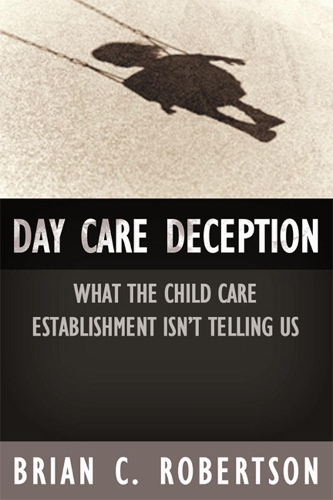
Day Care Deception: What the Child Care Establishment Isnt Telling Us
(Paperback)
Publishing Details
Day Care Deception: What the Child Care Establishment Isnt Telling Us
By (Author) Brian C. Robertson
Encounter Books,USA
Encounter Books,USA
25th October 2004
United States
Classifications
General
Non Fiction
362.712097
Physical Properties
Paperback
222
Width 140mm, Height 201mm
354g
Description
The central issue of daycare is often framed in a way that pits working moms against stay-at-home moms, and feminists against traditional families. But the real conflict, Brian C Robertson shows in this carefully researched book, is between all parents and the burgeoning day care establishment itself - a multimillion dollar lobby with a vested interest in the expansion of subsidised day care services. Robertson shows how this establishment works to expand its power and silence its critics. Despite the fact that most reliable studies show that commercial day care has a negative effect on the emotional, psychological and even physical development of children, for instance, researchers calling attention to the correlation between aggression among children and too much non-maternal care have seen their work vilified. Studies making the case for parental care - because of the importance particularly of a mother's attention in early childhood development - have been twisted to bolster the case for day care on the grounds that day care equals 'school' and parental care deprives the child of that head start. Every year, Robertson shows, the day care lobby pours more and more money into elections, which is why politicians are moving to provide ore public subsidies for commercial day care while parents are increasingly calling for policy options that would help them stay home to raise their children. Day Care Deception is a sober and thoughtful book that taps into a profound and contentious debate whose outcome will have enormous consequences for our children and our social future.
Reviews
"Day Care Deception amounts to a crushing indictment of the day-care industry."
Author Bio
Brian C Robertson is a Kohler Fellow at the Howard Center for Family, Religion and Society, and has written extensively on family policy issues. His articles have appeared in National Review, the Wall Street Journal, and the Washington Times.
